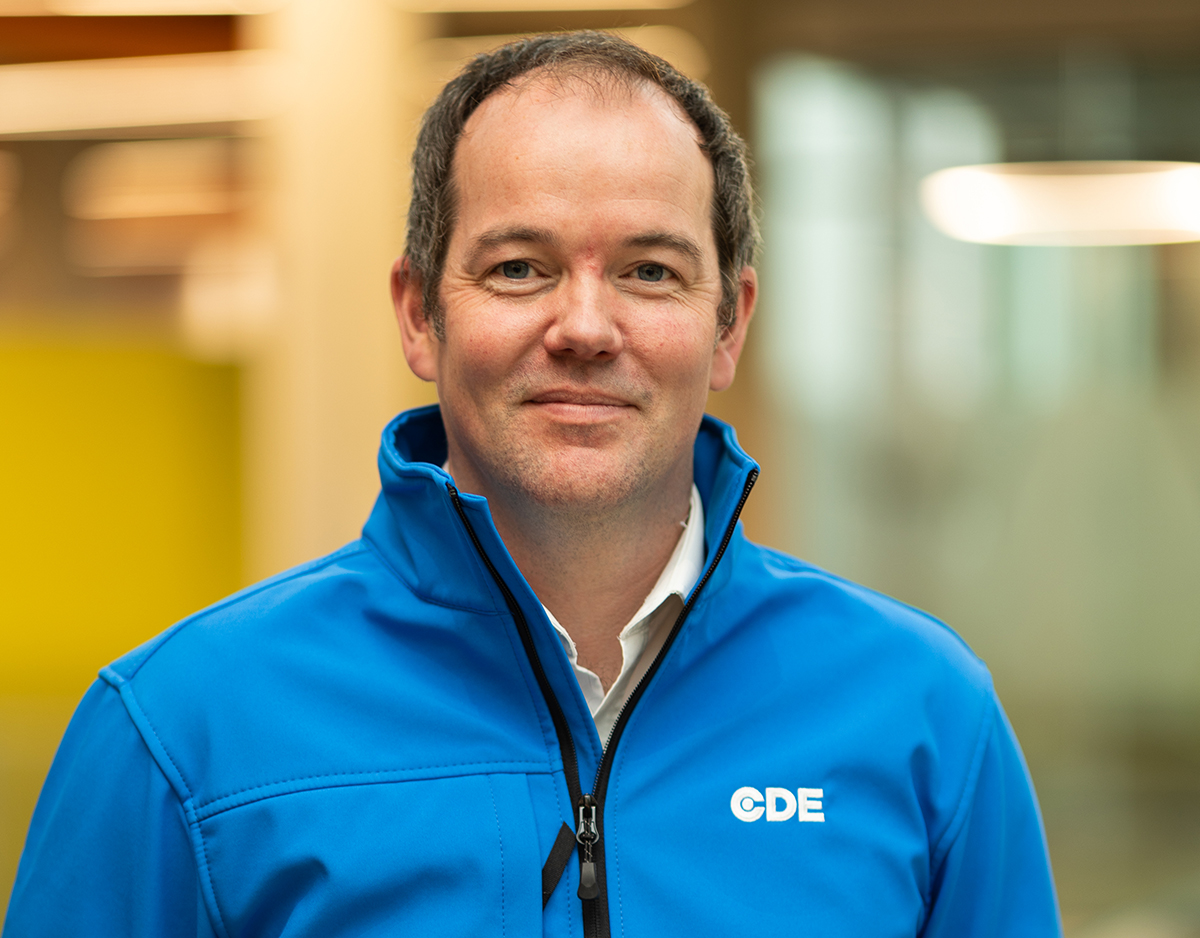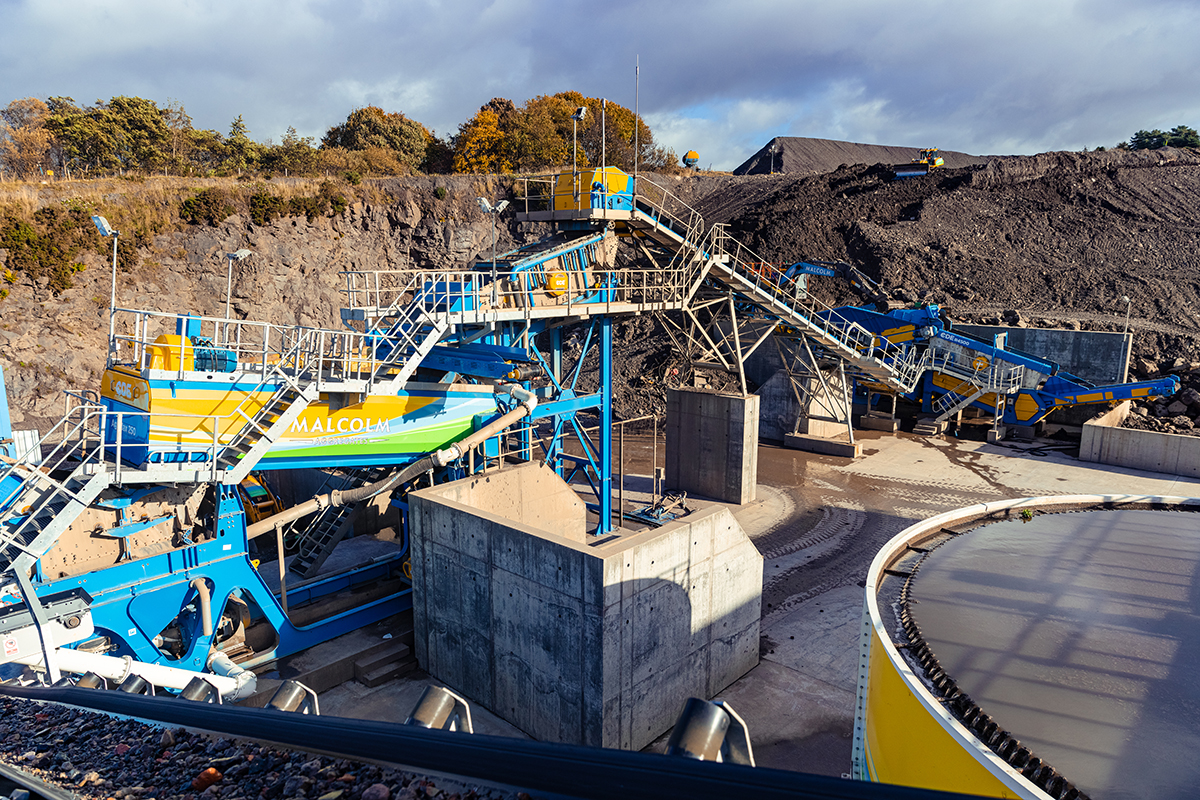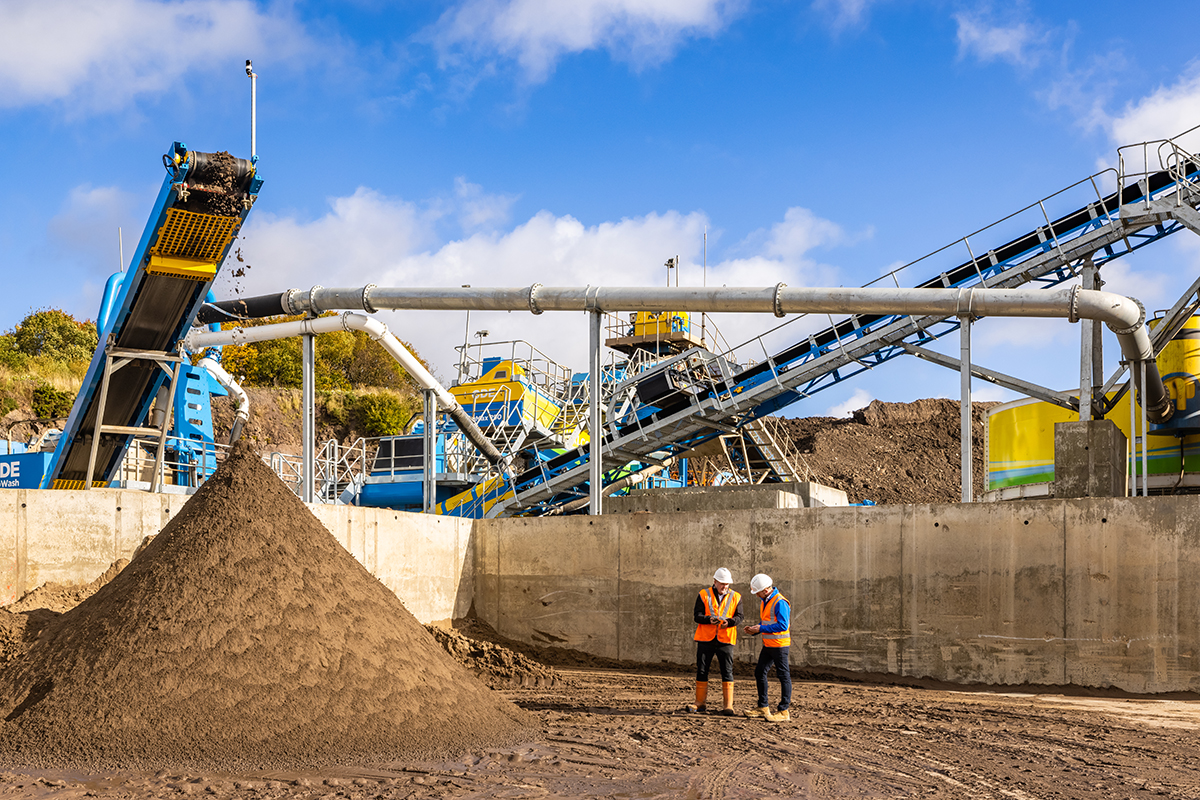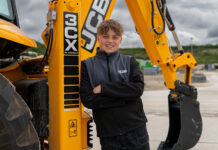
CDE, a supplier of sand and aggregate wet processing solutions, is this year celebrating its 30th year in business. The family-owned firm, founded in 1992 by company chairman Tony Convery, has developed technologies to help divert more than 100 million tonnes of construction, demolition and excavation waste from landfill, globally.
Headquartered in Northern Ireland, CDE today operates across five regions worldwide and plans to mark its three decades by strengthening its manufacturing capabilities and regional hubs, as well as expanding its workforce to meet demand.
Fergal Campbell, CDE’s business development manager for Scotland, recently told Project Plant about the firm’s latest developments and investments, being at the forefront of sustainability, and the opportunities which exist around waste recycling.
Q) How did you break into the plant industry and what does your current role at CDE comprise of?
A) I started off working with my uncle’s civil engineering and quarrying business in Northern Ireland before moving into consultancy and contracting roles in Scotland.
I joined CDE in 2012 as part of the environmental sector of the business. My current role involves meeting existing and potential customers to identify and develop solutions for their business. Sometimes this can be developing for future growth or to solve existing problems.
Q) What are some of CDE’s latest developments and innovations?
A) Due to our sole focus being wet processing and the volume of projects we deliver around the world, it’s sometimes difficult to keep track even from the inside! I’d say one of our biggest strengths is incremental improvement and innovation within our existing product set which helps us deliver proven results.
Also, work we have done around trommel fines and traditionally perceived wastes from quarrying has pushed the boundaries of what was previously thought of as waste.
Q) What sectors are you most prominent in and what trends are you seeing at the moment?
A) My role incorporates all the sectors and I have a great team of people I work with to bring a broad range of experiences and projects to develop solutions. A key consideration now is sustainability and ensuring that we are extracting maximum value when processing materials.
CDE can now provide solutions which reduce the amount of construction and demolition waste material ending up in landfill and instead create in-spec sand and aggregates which they can sell into the construction sector. I am also seeing a lot of customers innovating with their own natural deposits to produce high-value products out of quarry wastes.
Q) How important is the Scottish market to CDE? Can you give some examples of where CDE equipment is in operation in Scotland?
A) We have a broad range of customers across Scotland and are actually hosting an open day with one of our Scottish customers, Malcolm Construction, on the 7 – 8th September. This is a complete wet processing solution in a hard rock quarry which is helping Malcolm’s extend the life of their hard rock reserves, save void capacity, and increase the quarry’s output by 400,000 tonnes per annum via a new range of sustainable in-spec sand and aggregates for the construction market.
Q) With sustainability becoming increasingly important, what environmental advantages can CDE equipment offer? How has the sustainability side of things developed over the years?
A) CDE have been championing zero waste along with our customers for many years. Our fully electric wash plants and in-house electrical innovation team ensure that power consumption is minimised and efficient.
We spend a lot of time looking at by-products of processes to recover maximum value, either in recycling or scalping or overburden in quarries.
Q) What do you consider to be some of the biggest opportunities for the firm in the coming years?
A) I see waste recycling as a huge opportunity for the industry going further. More and more businesses are challenging their existing operations and processing to see how to drive value from every element of their business.
With the value of quarries and void space rising year on year, and the challenges with opening new sites, increasing their remaining life and longevity by extracting maximum value has never been more important.
Q) CDE is celebrating 30 years in business this year. What’s been the key to that longevity and continued growth?
A) I think people and culture are massive. The easiest thing in our industry is to tell customers what they want to hear and hope it works out, but having the right people able to ask the difficult questions and the culture to do the right thing means we deliver what we promise.
The percentage of repeat customers we have is testament to this and our Customer for Life model provides support throughout the lifetime of their plant. The business recognised many years ago that directly engaging with and supporting our customers allows us to understand their unique materials, challenges, and markets to design a solution that is right for them.
Q) What have been some of the key milestones for the business over the past three decades?
A) Since 1992, CDE has delivered over 2,000 projects in over 100 countries. We are proud that our technology has diverted over 100 million tonnes of construction, demolition and excavation waste from landfill globally.
Q) Bringing us up to present day, how many employees does CDE have and what can you tell us about the firm’s global operations?
A) We currently have over 550 employees, with this number increasing each month.
We have staff and offices across the globe. Closer to home we have a manufacturing base in Northern Ireland. This includes a 300,000 sq ft facility, bought in 2018, to increase manufacturing capacity and this year invested £2 million in state-of-the-art laser cutting technology which will enable our manufacturing division to double output.
Q) What’s the best advice you’ve ever received?
A) Treat people right.
Q) Any funny anecdotes from your career?
A) Probably a few that aren’t suitable for print!
Q) Finally, how do you relax when you’re not working?
A) We have three kids and a family farm so relaxing isn’t always an option! However, spending time with the family, watching sport, and having a nice pint with friends would be top of the list.










